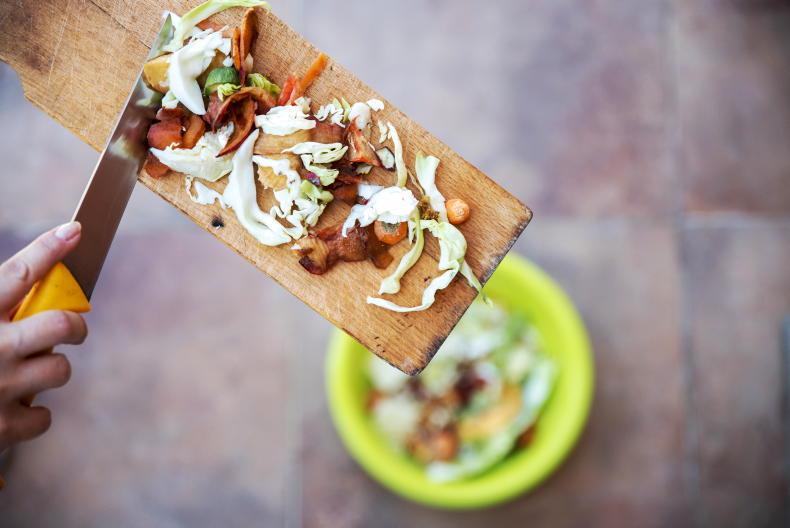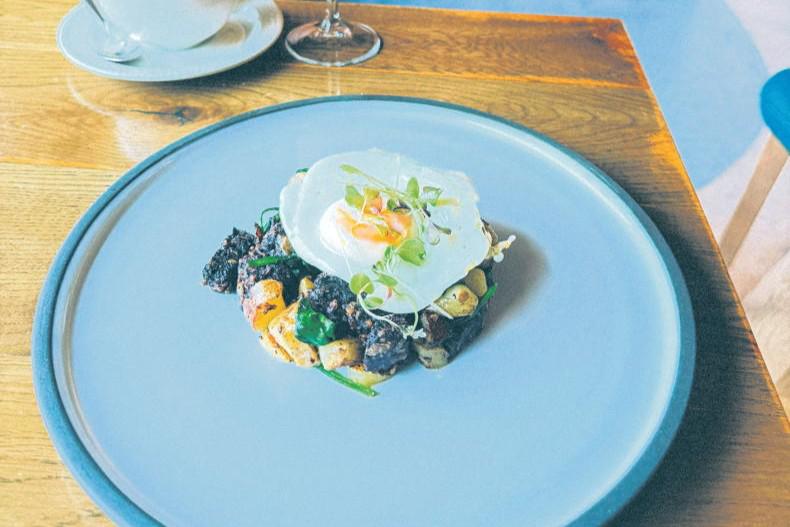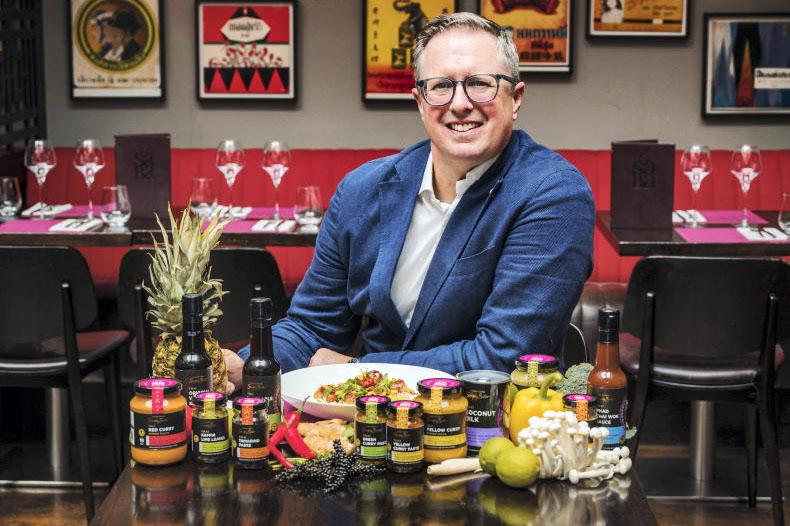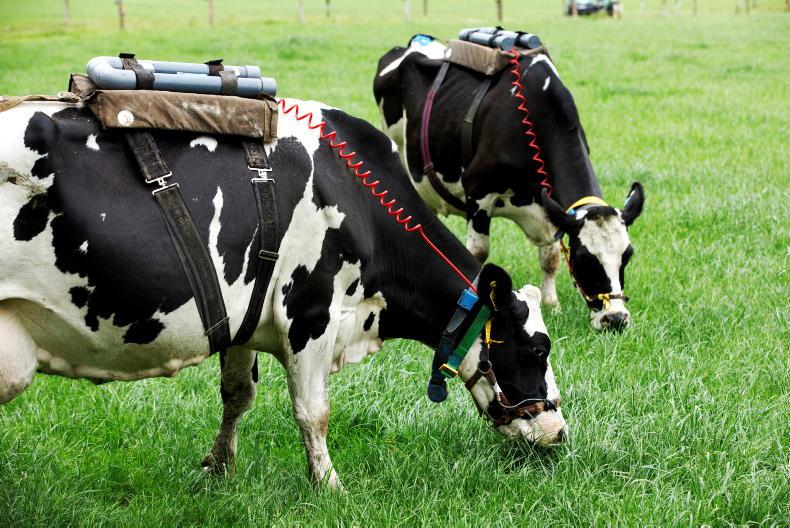In late 2020, the Government officially launched Ireland’s National Waste Policy 2020-2025. Among other things, it served to provide a roadmap to our approach to waste management. It aims to reduce food waste by 50% by 2030.
Serious problem
We’ve all been there: opening up the fridge only to find that long-forgotten tub of yoghurt or a slimy bag of lettuce.
We’re only human and will likely never be able to cut our household food waste by 100%. But food waste, on a global scale, is at such a serious level that we need to start talking about it more and taking action.
If food waste were a country, it would be the third largest greenhouse gas (GHG) emitter on the planet – just behind China and the US.
When we see food waste in our homes, we think to ourselves, “that’s a shame”, and perhaps vow to do better. But we rarely see or understand the climate impact food waste is having.
FoodCloud
Jessica Greene, brand and communications manager at FoodCloud (an Irish social enterprise which connects surplus food with community groups), says food waste can be a costly problem for the average Irish household.
“We all know wasting food isn’t a good thing, but its link to the climate issue can be surprising to people,” she says. “Globally, food waste accounts for four times more carbon emissions than global aviation emissions. In the average Irish household, €700-€1,000 worth of food is wasted per year. It’s not just the wasted food; a huge amount of resources go into our food system: water, labour, shipping, transport – all of these things are also wasted when we throw away food.”
FoodCloud began in 2012 when CEO Iseult Ward and co-founder Aoibheann O’Brien met and started talking about the issue of food waste. By 2013, they officially launched and started working with a few retailers around Ireland. Today, they connect retailers and surplus food with their network of more than 600 community groups and charities, both through their technology and also their three warehouses – one in Galway, one in Cork and one in Dublin – which deal with larger amounts of surplus food from higher up the supply chain.
Twin issues
“Today, we’re tackling twin issues: food waste and food security,” Jessica says. “This means ensuring the food doesn’t go to waste and, also, that it finds a good home. Our technology is used in the UK and also across multiple food banks worldwide.
“To date, we’ve redistributed more than 59,000t of surplus food – the equivalent of 140m meals across both solutions – 38.5m of which were in 2021 alone (and 40m of those were in Ireland). By avoiding this food going to landfill, 188,000t of CO2 was avoided.”
Doing your bit
The majority of food waste isn’t necessarily coming from private homes, but from larger supermarkets and food supply companies. It’s easy to despair when you think there is so little you can actually do. Tessa Clarke co-founded the global food waste app OLIO to help give more power to the individual.
The app connects communities through food sharing. For example, if you have surplus food from Christmas which you feel will go to waste, you can take a picture of the food and upload it onto your OLIO app. Community members who are also on the app will be alerted and can browse and request whichever food items they might like.
“I grew up with a pathological hatred for food waste,” Tessa says.
“I spent years working in the digital space, so it was intuitive to think an app could help solve this problem. My co-founder Sasha immediately ‘got’ this idea – we researched food waste and immediately resolved to launch OLIO.
“The app is global and so far we’ve had items shared in 61 countries. What’s amazing, though, is the demand for the food itself – half of all the listed items added to the app are requested in less than 21 minutes.”
Tessa says they wanted to provide the individual with a way to act on food waste rather than wait for government or business-led initiatives, which have been painfully slow.
“We are big into individual empowerment,” she says. “The real magic is the doorstep connection – there are lots of reasons why there might be too much food in the home. The problem is because we are no longer connected to our local community; we have no one to give that spare food to. People are building friendships [through our app] – over 40% of our community have said they’ve made friends since joining OLIO.”
foodcloud.ie
olioex.com
In the market for new kitchen appliances? Consider models that will keep food fresher for longer
Many new models of fridge and freezer are not only the desirable A+++ energy rating, they offer functions like fast-cooling systems, which keep ingredients at the optimal temperature almost as soon as you put them away. Many freezers now also have a rapid-freeze function that keeps food tasting as fresh as possible, even after being frozen for weeks.
UK-based non-profit charity Wrap released a report on the Impact of more Effective use of the Fridge and Freezer – they found that the majority of food waste is coming from perishable foods which were either not stored properly (below 4°C in the fridge, properly wrapped or packaged) or not frozen in time.
They maintain that by simply reducing the temperature in your fridge to the recommended 4°C, you could add an additional three days of freshness to perishable foods.
Read more
Climate Conversations: changing materials and mindsets through the bioeconomy
Climate Conversations: engaging in a circular economy, part two
In late 2020, the Government officially launched Ireland’s National Waste Policy 2020-2025. Among other things, it served to provide a roadmap to our approach to waste management. It aims to reduce food waste by 50% by 2030.
Serious problem
We’ve all been there: opening up the fridge only to find that long-forgotten tub of yoghurt or a slimy bag of lettuce.
We’re only human and will likely never be able to cut our household food waste by 100%. But food waste, on a global scale, is at such a serious level that we need to start talking about it more and taking action.
If food waste were a country, it would be the third largest greenhouse gas (GHG) emitter on the planet – just behind China and the US.
When we see food waste in our homes, we think to ourselves, “that’s a shame”, and perhaps vow to do better. But we rarely see or understand the climate impact food waste is having.
FoodCloud
Jessica Greene, brand and communications manager at FoodCloud (an Irish social enterprise which connects surplus food with community groups), says food waste can be a costly problem for the average Irish household.
“We all know wasting food isn’t a good thing, but its link to the climate issue can be surprising to people,” she says. “Globally, food waste accounts for four times more carbon emissions than global aviation emissions. In the average Irish household, €700-€1,000 worth of food is wasted per year. It’s not just the wasted food; a huge amount of resources go into our food system: water, labour, shipping, transport – all of these things are also wasted when we throw away food.”
FoodCloud began in 2012 when CEO Iseult Ward and co-founder Aoibheann O’Brien met and started talking about the issue of food waste. By 2013, they officially launched and started working with a few retailers around Ireland. Today, they connect retailers and surplus food with their network of more than 600 community groups and charities, both through their technology and also their three warehouses – one in Galway, one in Cork and one in Dublin – which deal with larger amounts of surplus food from higher up the supply chain.
Twin issues
“Today, we’re tackling twin issues: food waste and food security,” Jessica says. “This means ensuring the food doesn’t go to waste and, also, that it finds a good home. Our technology is used in the UK and also across multiple food banks worldwide.
“To date, we’ve redistributed more than 59,000t of surplus food – the equivalent of 140m meals across both solutions – 38.5m of which were in 2021 alone (and 40m of those were in Ireland). By avoiding this food going to landfill, 188,000t of CO2 was avoided.”
Doing your bit
The majority of food waste isn’t necessarily coming from private homes, but from larger supermarkets and food supply companies. It’s easy to despair when you think there is so little you can actually do. Tessa Clarke co-founded the global food waste app OLIO to help give more power to the individual.
The app connects communities through food sharing. For example, if you have surplus food from Christmas which you feel will go to waste, you can take a picture of the food and upload it onto your OLIO app. Community members who are also on the app will be alerted and can browse and request whichever food items they might like.
“I grew up with a pathological hatred for food waste,” Tessa says.
“I spent years working in the digital space, so it was intuitive to think an app could help solve this problem. My co-founder Sasha immediately ‘got’ this idea – we researched food waste and immediately resolved to launch OLIO.
“The app is global and so far we’ve had items shared in 61 countries. What’s amazing, though, is the demand for the food itself – half of all the listed items added to the app are requested in less than 21 minutes.”
Tessa says they wanted to provide the individual with a way to act on food waste rather than wait for government or business-led initiatives, which have been painfully slow.
“We are big into individual empowerment,” she says. “The real magic is the doorstep connection – there are lots of reasons why there might be too much food in the home. The problem is because we are no longer connected to our local community; we have no one to give that spare food to. People are building friendships [through our app] – over 40% of our community have said they’ve made friends since joining OLIO.”
foodcloud.ie
olioex.com
In the market for new kitchen appliances? Consider models that will keep food fresher for longer
Many new models of fridge and freezer are not only the desirable A+++ energy rating, they offer functions like fast-cooling systems, which keep ingredients at the optimal temperature almost as soon as you put them away. Many freezers now also have a rapid-freeze function that keeps food tasting as fresh as possible, even after being frozen for weeks.
UK-based non-profit charity Wrap released a report on the Impact of more Effective use of the Fridge and Freezer – they found that the majority of food waste is coming from perishable foods which were either not stored properly (below 4°C in the fridge, properly wrapped or packaged) or not frozen in time.
They maintain that by simply reducing the temperature in your fridge to the recommended 4°C, you could add an additional three days of freshness to perishable foods.
Read more
Climate Conversations: changing materials and mindsets through the bioeconomy
Climate Conversations: engaging in a circular economy, part two









SHARING OPTIONS